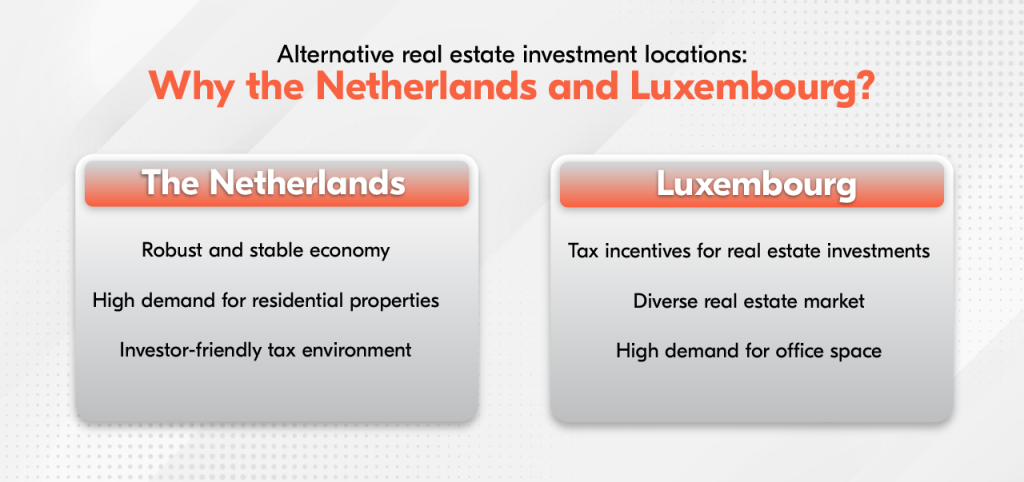Understanding Spain’s SOCIMIs framework proposed changes
SOCIMIs in Spain (Sociedades Anónimas Cotizadas de Inversión Inmobiliaria) are public limited companies that directly or indirectly invest in urban real estate for leasing, such as homes, hotels or commercial premises. It is a type of Spanish Real Estate Investment Trust (REIT) with significant tax benefits, stable profitability and liquidity, which makes it an attractive investment vehicle.
SOCIMIs currently enjoy zero taxation under the Corporate Income Tax rate. However, the Spanish government parties, specifically the PSOE and Sumar, have recently proposed amending or eliminating the tax advantages for SOCIMIs. If the proposal is approved, these investment vehicles would be subject to the general Spanish corporate tax rate of 25 per cent. For this reason, the Comisión Nacional del Mercado de Valores (CNMV), which regulates Spain’s stock market and publicly listed companies, has advised caution in dealing with the proposed adjustments in the tax regime for SOCIMIs.
The CNMV further notes that SOCIMIs are not unique to Spain as they exist in similar forms across 14 jurisdictions within the EU. As a result, the Commission has expressed concerns regarding possible business relocations, especially since these tax reforms have prompted such actions from key industry players like Merlin and Colonial.
Impact of changes in Spain’s SOCIMIs on investors and the real estate market
According to the Spanish Association of Real Estate Consultancy Firms (ACI), the proposed tax reform that targets SOCIMIs might jeopardize €15 billion in investment transactions made in the Spanish real estate sector since 2014. ACI’s major real estate consultancies state that these changes regarding SOCIMIs could worsen current market issues and reduce Spain’s competitiveness compared to other European countries.
Furthermore, ACI highlights how important SOCIMIs are to attracting both domestic and foreign real estate investment. They are, therefore, seen as essential to preserving legal certainty and Spain’s current tax system, which has been effective since its establishment in 2009. ACI also emphasises that SOCIMIs account for a small percentage of rental housing in Spain, indicating that adjustments to their tax status would have a minimal impact on the country’s overall housing supply.
Alternative investment destinations

Given the proposed changes for SOCIMIs in Spain, investors and businesses could potentially relocate to other jurisdictions within the EU with more favourable tax regimes and better conditions for real estate investment.
One of the best options is the Netherlands due the transparency, stability and growth opportunities of the Dutch real estate market. The country is experiencing high demand for residential properties, particularly in major cities such as Amsterdam, Rotterdam and The Hague. Moreover, the Netherlands offers an investor-friendly tax environment for real estate investments. It also does not impose restrictions on foreign ownership, allowing international investors to freely buy, sell and rent out real estate in the country.
Luxembourg is another excellent alternative for investors since its real estate market provides steady returns and unique investment opportunities. In addition to the attractive tax incentives it offers for real estate investments, the country has a diverse real estate market, including residential, commercial and industrial properties. Luxembourg also has a high demand for office space, and its retail market remains resilient.
Conclusion
The possible adverse impacts of SOCIMIs in Spain on investments will concern the real estate industry, particularly the potential relocation of the leading REITs outside the country if the proposal is implemented. In addition to future investments, the recent changes to the SOCIMI structure might also affect the capital these investment vehicles have already allocated to the sector. Collectively, they have a capitalisation of more than 24 billion euros across more than 124 companies.
How can we help
Potential amendments to the SOCIMIs framework in Spain may cause high-net-worth individuals, institutional investors and financial professionals to reevaluate their real estate investment plans. At Bolder, we ensure that our clients stay updated on these evolving regulations so they can make informed decisions about their investment strategies.
Our team can help you explore alternative investment destinations and enter new markets seamlessly by guiding you through the entire process. With our active and strong presence in the EU, especially in the Netherlands and Luxembourg, you can count on our expertise about the tax benefits, legal frameworks and investment opportunities in these jurisdictions if you plan to relocate to these alternative locations.
Ready to discuss your needs? Contact our Bolder Netherlands and Luxembourg representatives to learn more about our solutions.
Bolder Group does not provide financial, tax or legal advice and the information contained herein is meant for general information purposes only. We strongly recommend that before acting on any of the information contained herein, readers should consult with their professional advisers. The Bolder Group accepts no liability for any errors or omissions in the information, or the consequences resulting from any action taken by a reader based on the information provided herein.
Bolder Group refers to the global network of independent subsidiaries of Bolder Group Holding BV. Bolder Group Holding BV provides no client services. Such services are provided solely by the independent companies within the Bolder Group which are each legally distinct and separate entities and have no authority (actual, apparent, implied or otherwise) to obligate or bind Bolder Group Holding BV in any manner whatsoever. The operations of the Bolder Group are conducted independently and have no affiliation with third party financial, tax or legal advisory firms or corporations.
